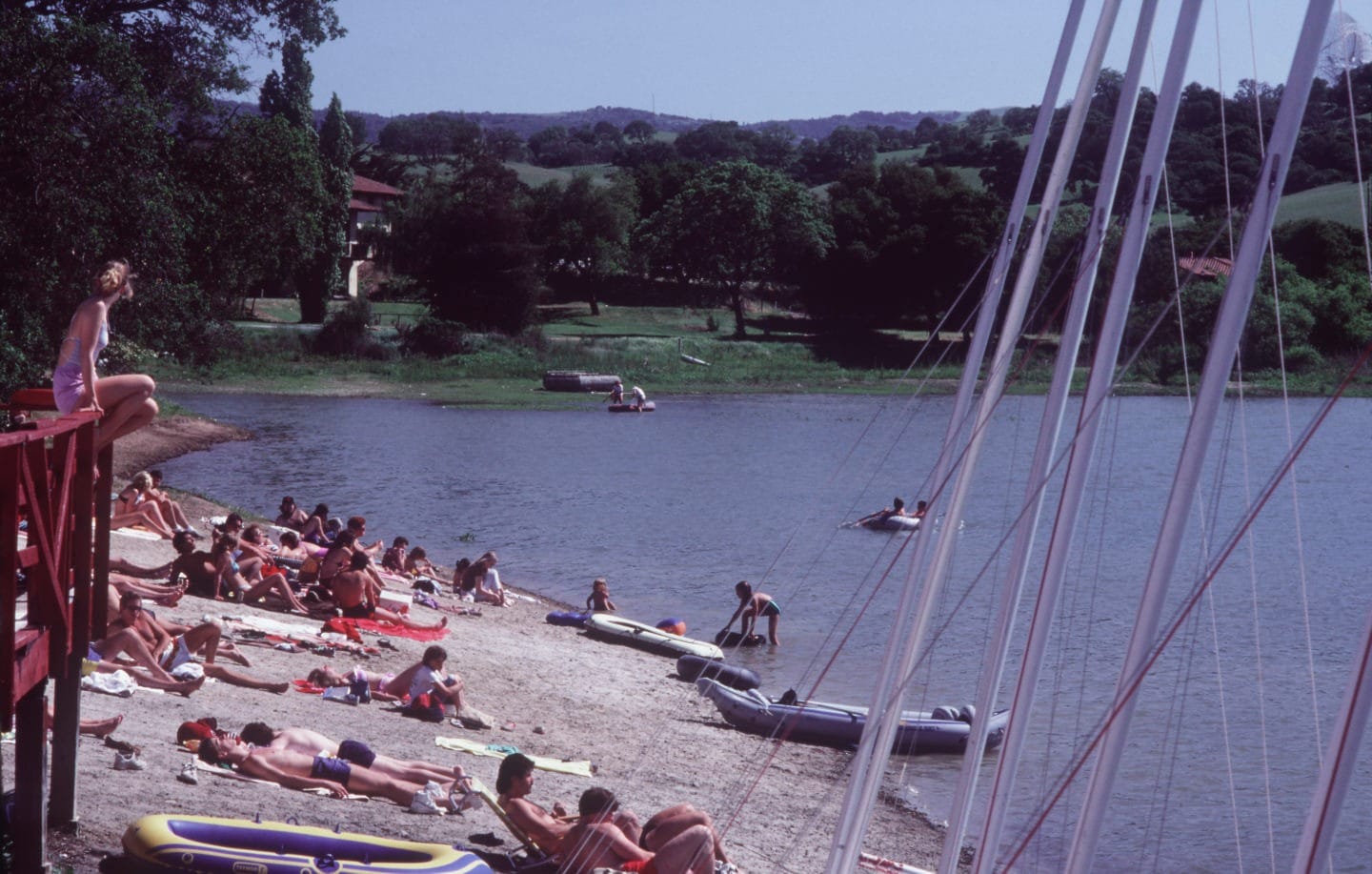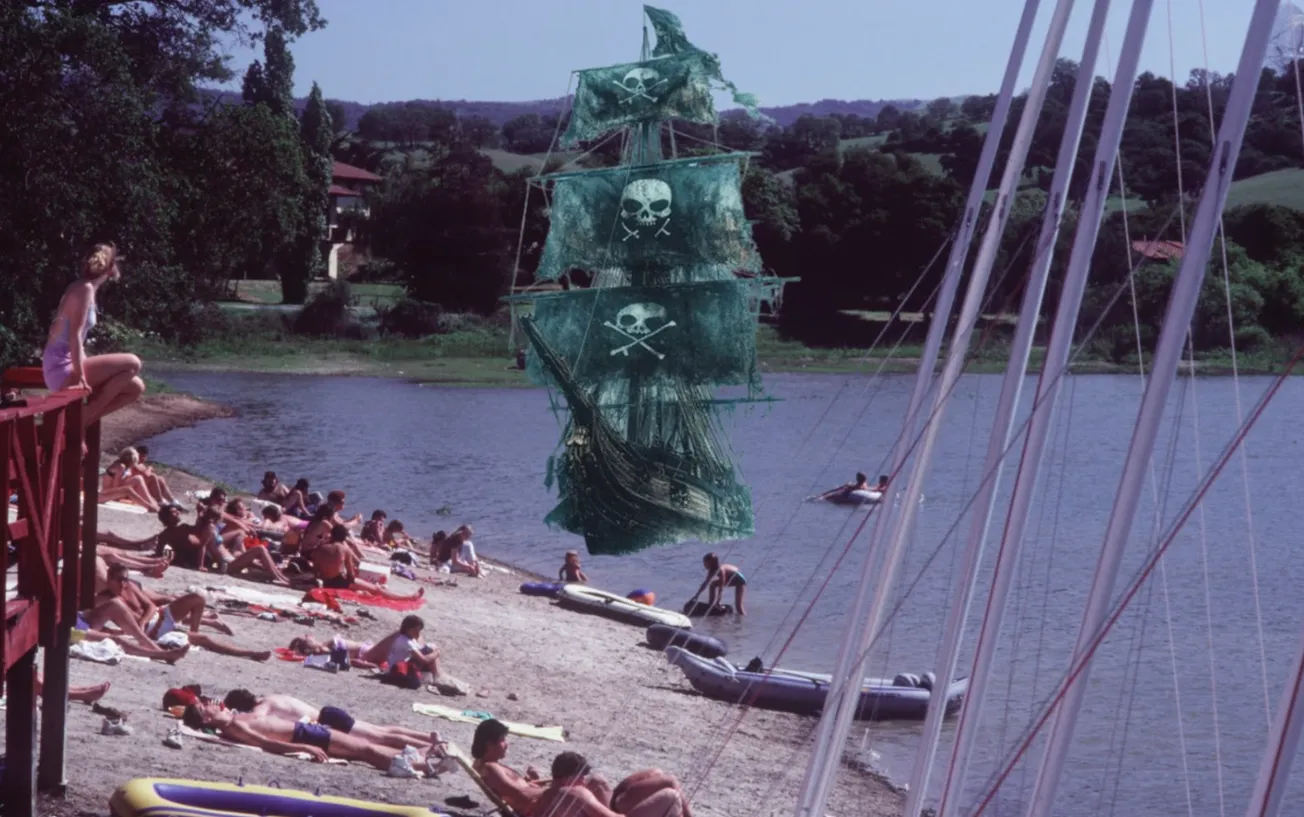Table of Contents
“Stanford shouldn’t be the Navy; it should be the Pirates.”
This line, from a recent Stanford Review meeting, captures the university’s defining tension. The Navy stands for order, procedure, and safety; the Pirates for openness, disruption, and courage. In this struggle, the Pirates have been dealt a symbolic blow: the loss of their home, the lake.
The draining of the lake saw the Pirates’ vital energies seep away. Since then, piracy has precipitously declined, with what amounted to Waterloo during Covid. The Navy's increasing dominance stripped the Band’s independence, shuttered Greek life and theme houses: taming the last safe haven of piracy that alumni fondly remember. The zenith of the Navy's power was marked by the infamous slogan coined by The Review: ‘Stanford Hates Fun.’
This safetyism isn't just anti-fun. It curbs Stanford's ability to produce technological innovation, research, and serve the nation. Over the past decade, Stanford has seen explosive growth in compliance, DEI, and risk-management bureaucracies, leading to a shocking staff-to-student ratio of almost 1:1. Defense Tech research has been vetoed, DEI stripped away capacity to hire great scholars, Stanford's scientists Jay Bhattacharya and Scott Atlas were censured, speech codes stifled scholarly exchange, and mountains of paperwork and ideological tests prevented RA hiring and research grants.
On the opposing side, Stanford is made great by the Pirates; the buccaneers that oppose this deluge of procedure, taking quarters off to pursue (real) startups, building earth-shattering technology, all while exploring the steam tunnels. Marooned on the desert island, that is our dry lake bed, they are only beginning to recover.
Lake Lagunita symbolized the Golden Age of Stanford's pirates. In 1942, Captain J.F.K. would spend afternoons sailing Lake Lag while at Stanford’s MBA programme. The draining of the Lake deprives Stanford’s future captains of the very element that made the university distinct: a frontier ethos. Inversely, the refilling of the lake would represent Stanford once again willing to prioritize freedom over safetyism. Most of all, it would be fun.
Stanford succeeded while the Ivies languished in gentility because it developed a culture of rugged individuality and buccaneering experimentation. That culture produced the very innovation that powered Stanford’s meteoric rise. Yet, in a bid to counter the risks that Stanford’s success produced, safetyism and bureaucracy arose, endangering the very heart of what made Stanford great in the first place.
Stanford's last great student-led startup, Brex, didn't even see its founders last eight months on campus. That was eight years ago. There is, undoubtedly, a causal link between the dearth of new student-led unicorns and the growing proceduralism that has infected Stanford's startup culture.
From startup clubs to startup incubators (manufacturers), this ‘path’ is becoming increasingly institutionalized, formula-driven, and insured. Indeed, the fact that it is considered a prospective ‘career path’ in and of itself is a testament to this tracked process. In that sense, Stanford is at risk of becoming a victim of its own successes.
Student journalists have had the foresight to identify this trend since 2013. Stanford’s Miles Unterreiner published a widely read salute to Stanford’s spirit of piracy. In it, he declares that Stanford should never allow the “encrusting tendrils of ivy” to “creep over our walls” and “ensnarl the engines of progress that hum eternally beneath the sandstone.” Beneath this metaphor is a truth too serious to ignore; Stanford’s greatness has always depended on its refusal to become an Ivy.
Every ivy has an archetype; Harvard men inherited tradition, Yale men refined it, Princeton men romanticized it. The Stanford man, however, should be a pirate. Refilling Lake Lag is a symbolic way to reject order and retain the archetype that makes Stanford great.
Re-piratizing Stanford does not mean courting harm. A great university manages risk and encourages agency; it does not outsource judgment to the thickest binder. Refill the lake. Let the winds of freedom blow in the pirate ship's sails; before the tide of safetyism drowns what made Stanford great. And in the meantime, dear reader, enjoy some photos of Lake Lagunita’s first pirates:










